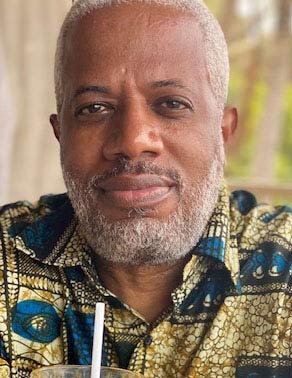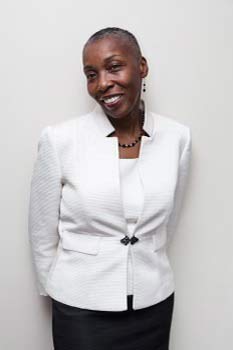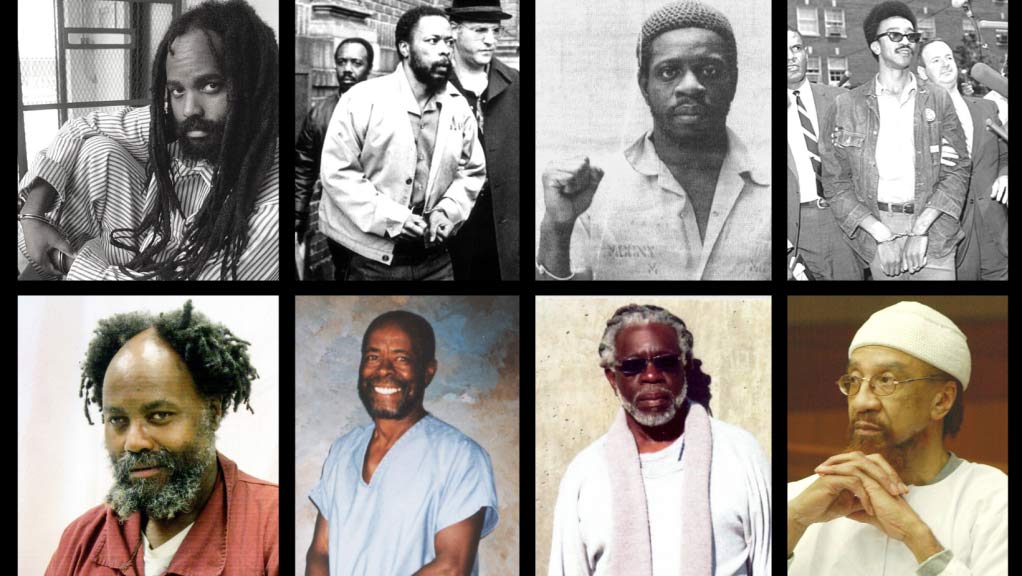Black History
Black August
By Maitefa Angaza
At this time each year activists and advocates across the nation observe Black August. It was first organized by Black political prisoners in California in 1979 to commemorate those they deemed fallen freedom fighters. The month-long commemoration involved fasting from sunrise to sunset, study, abstention from drugs and alcohol, from radio and television and recommitment to struggle in the quest for liberation from oppression.

A particular focus remains the releasing of Black political prisoners. Some have come to realize over time that many imprisoned activists, held for inhumane spans of time, are still behind bars because they dared to advocate for and defend their communities. The Black Panthers, for example, while feeding schoolchildren and providing free health clinics, became targets for retaliation when they dared to use open-carry laws to bear arms in California at the time. They were signaling that the wholesale and unpunished killing and brutal abuse of Black people by law enforcement would no longer be tolerated. Campaigns of intimidation, infiltration and incarceration soon followed.
In areas across the nation Black August has grown exponentially over the decades, with people “on the outside,” as well as organizations and initiatives dedicated to the observance. It now includes, along with educational and organizing discussions and events, a variety of arts and cultural gatherings as well.
So what’s so Black about August? Lots of things. The month was chosen because of its wealth of significance in Black History. It’s when the Frederick Douglass’ Fugitive Slave Law Convention was held, and when Nat Turner’s Rebellion, the Haitian Revolution, the Watts Rebellion, the Ferguson Uprising all took place. And August birthdays include Marcus Garvey, Anna Julia Cooper, James Baldwin, Fred Hampton and George Jackson.
A Black Brooklyn Contribution to Black August
Black August has added significance in part because of Black Brooklyn. It was here that a local activist organization, the Malcolm X Grassroots Movement (MXGM) designed a cultural innovation that captured the minds of young people in support of political prisoners. MXGM would also go on to organize with others to change New York State laws affecting all incarcerated people.:
The Malcolm X Grassroots Movement declares itself “… an organization of Afrikans in America/New Afrikans whose mission is to defend the human rights of our people and promote self-determination in our community.” It highlights community control, unity, organizing and heightened consciousness as tools to combat white-supremacy, patriarchy and oppression. Lumumba Bandele, a Brooklyn native and lifelong activist, joined MXGM in 1994. He took part in the advocacy work the organization was doing prior to, and during the Black August initiatives.
“When the Malcolm X Grassroots Movement decided to do Black August activities,” Bandele said, “we did it in a very nonconventional way. What we did was to take the theory and the story of Black August and use Hip Hop as a vehicle to tell that story. And so we got a number of rap artists from New York City in general who wanted to donate their time. Many were known locally, but over the years became some of the best rap artists of that era.”
The concerts, designed to raise awareness of U.S. political prisoners and funds for their defense committees, were a success. Held intermittently between 1998 and 2010, with an online benefit concert organized in 2020, they were a source not only of entertainment and enthusiasm, but of real support for the cause.
“Before that our fundraisers for political prisoners probably netted about $500,” said Bandele. “But we were doing well over that with the Black August concerts, some of which happened in Brooklyn, starting with the first in 1998. We also traveled internationally with some of these artists. We would perform in Cuba and Venezuela and Haiti, in Johannesburg, in Tanzania. We went to Hip Hop communities in the African Diaspora and on The Continent.”
As successful as they were, MXGM found that the concerts, leafleting, town halls and open mics weren’t sufficient to meeting its objectives. The organization was, in part, dedicated to the release of “Black freedom fighters who were incarcerated.” But it concluded that although awareness was increasing, political prisoners were not returning home. The lesson learned was that just informing people doesn’t move them to action, they must be given concrete ways in which to participate. And the organization began to focus also on parole reform.
“We joined with other organizations across New York State,” said Bandele, “pressuring the government to change some regulations and to apply some of the existing regulations. One of the main things that prohibited our folks from coming home, was that whenever they went up for parole, the reason they were denied was ‘the nature of the crime.’ So we were able to petition the governor [Andrew Cuomo] to take that off the table as a major criteria and to focus on people’s time in prison. Because the nature of the crime will never change. So unless someone is actually sentenced to life without parole, then you have to apply the criteria that parole is defined as.
The coalition also pushed for — and achieved — changes to the parole board, when the State began appointing civilians to balance the dominance of commissioners with law enforcement backgrounds.
“The folks who we were working on behalf of were really improving the lives of other people [behind bars]. They were teachers, they were mentors, poets, and visual artists. So when we began to apply what the law was really supposed to do, they began to come home.”
Some of those released as a result of the work of the coalition and its attorneys were: Sekou Odinga (2014) after 33 years; Herman Bell (2018) 44 years; Robert Seth Hayes (2018) 45 years; Jalil Muntaqim (2020) 49 years and Sundiata Acoli (New Jersey, 2022) 49 years.
Among those still imprisoned outside New York are Mutulu Shakur, Ruchell Magee, Mumia Abu Jamal and Kamau Sadiki — all suffering significant health crises. Shakur, a diabetic and a stroke and three-time Covid survivor, is terminally ill with cancer. He was recommended for compassionate release by a prison doctor six months ago. He has since been denied twice — by the same judge who sentenced him more than 30 years ago — although he now has mere weeks to live.
Bandele would direct people seeking to assist to the Jericho organization’s website, which lists those it recognizes as political prisoners. The public can find information on each including their websites, petitions, letter-writing campaigns, etc., letter-writing campaigns and other details on action and support steps that can be taken. Visit https://www.thejerichomovement.com.
An Activist Alliance
Furthers the Cause
Soffiyah Elijah founded the Harlem-based Alliance of Families for Justice (AFJ) in 2016. As executive director she helms its mission to support both the families of incarcerated people and people with criminal records. AFJ empowers them as advocates and also mobilizes them to marshal their voting power to achieve systemic change. She is appreciative of the role Black August commemorations can play in raising awareness of this work and the ongoing need for it.

“Mass incarceration has a ripple effect across the entire country,” says Elijah. “It destroys individuals, families and communities. Healthy communities are the foundation of a healthy society. Poor Black, Latinx and Indigenous people comprise the majority of the prison population and the families suffering silently in the background. Therefore we must ALL care and join forces to end this destructive practice of caging human beings.”
AFJ hosts weekly community organizing meetings on Thursday evenings and everyone is welcomed. Family Empowerment Circles, which take place on Tuesdays, are safe spaces for directly-impacted people. Songa Mbele, a healing circle for formerly incarcerated people, is held on the third Saturday of each month. And during Black August AFJ is hosting three full-weekend healing retreats upstate New York. By the way, Lumumba Bandele also serves as director of community organizing at AFJ.
A Young Activist in Office Supports Black August
“It’s unfortunate that Black August remains necessary for the freedom of Black political prisoners,” said City Council Member Chi Ossé. “It’s also undeniable. Black Americans continue to be incarcerated at a cruel and disproportionate rate, and then subjected to mental and physical violence while confined within our country’s prisons and jails. Political incarceration is by no means a thing of the past. Many currently incarcerated people are, in fact, political prisoners — locked up for the crime of fighting for freedom. We commemorate this month in pursuit of the collective liberation of all the children of Africa!”


